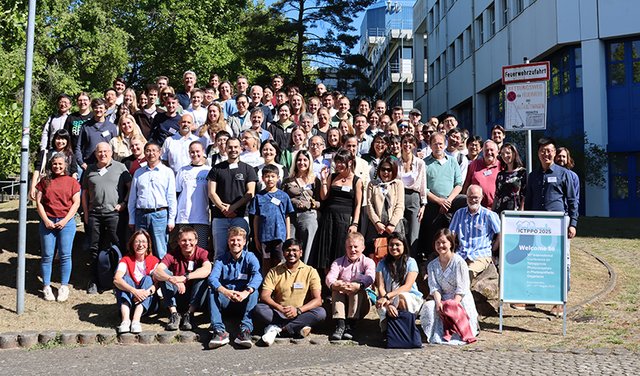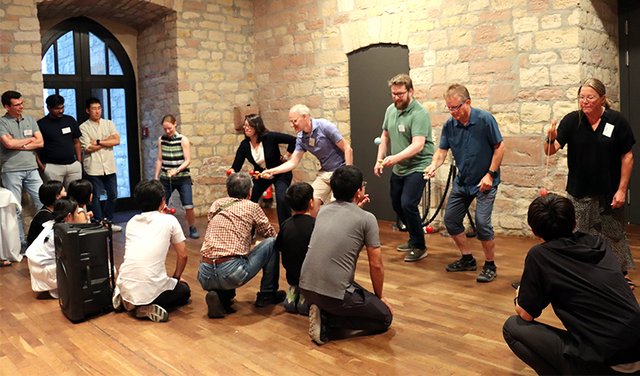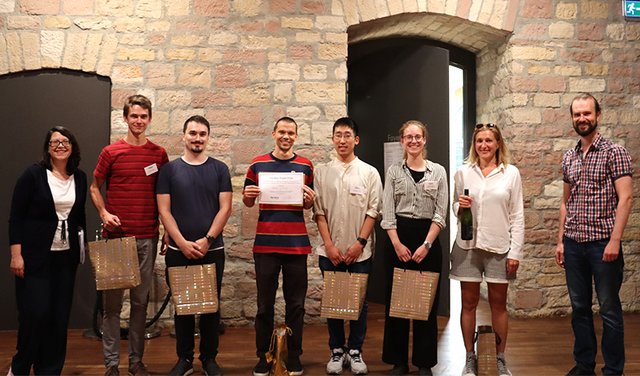The scientific programme featured 39 oral presentations and 47 poster contributions, showcasing the latest research on tetrapyrroles in photosynthetic organisms and their diverse roles spanning signal transduction and photosynthesis. In addition to leading experts, the conference was particularly enriched by the participation of many early career researchers and PhD students from a total of 16 different countries.
Thanks to generous support from the German Society for Plant Sciences (DBG), six international doctoral students received assistance with registration fees, and funds were also used to support two participating international families.
Topics and research focusses
The conference program encompassed a wide range of topical sessions, including photoreceptors (phytochromes and cyanobacteriochromes), photosynthetic complexes, and tetrapyrrole metabolism. Particular attention was given to recent advances in cryo-electron microscopy, which have unveiled increasingly complex protein structures involved in light perception and photosynthetic electron transfer. Equally fascinating were presentations on engineered phytochromes and novel phytobilin-based systems developed for emerging biotechnological applications. The poster sessions provided ample time for detailed discussions and exchange of ideas, facilitating valuable interactions among scientists at all career stages.
Keynotes
Among the highlights of the conference were the keynote lectures by Professor Neil Hunter (University of Sheffield, UK), who reviewed his extensive and pioneering work on tetrapyrrole metabolism and photosynthetic light-harvesting complexes, and Professor Roberta Croce (Vrije Universiteit Amsterdam, The Netherlands), who presented groundbreaking insights into the dynamics of photosynthetic light reactions, combining advanced biophysical approaches with molecular genetics.
Skills and awarded posters
A memorable cultural highlight was the afternoon excursion to Hambach Castle, followed by the conference dinner, offering participants an opportunity to experience local history and exchange ideas in an informal setting. Continuing a beloved tradition first introduced at the 2007 ICTPPO meeting in Kyoto, participants once again engaged in the Japanese skill game Kendama (https://en.wikipedia.org/wiki/Kendama), with younger attendees competing against elder players and international participants challenging the ever-confident Japanese team. In addition to the prizes for the best Kendama team, awards were given this year for the best scientific posters, with the grand prize being awarded to Dr. Thomas J. Oliver (Vrije Universiteit Amsterdam).
After three stimulating and enjoyable days of scientific exchange and collegial interaction, participants reflected on a highly successful meeting and now look forward to the next ICTPPO conference, to be held in 2027 in Kaifeng, China.
----
In November 2025
Prof. Dr. Bernhard Grimm, Humboldt-Universität zu Berlin, Institut für Biologie, AG Pflanzenphysiologie
und Prof. Dr. Nicole Frankenberg-Dinkel, RPTU University Kaiserslautern-Landau, Abteilung Mikrobiologie



